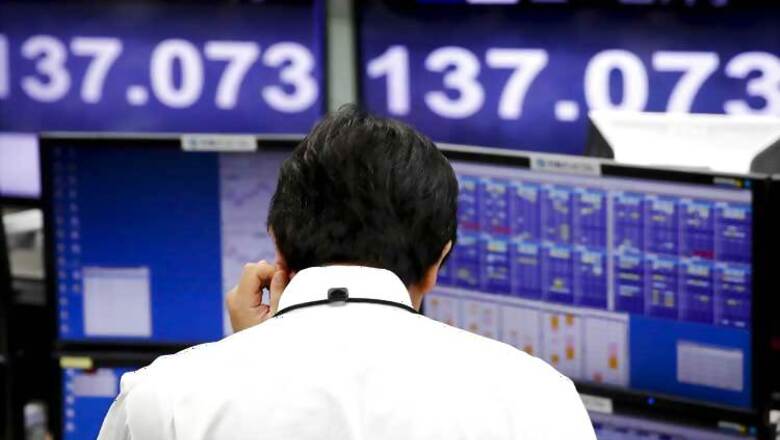
views
Reserve Bank of India Governor Raghuram Rajan recently raised fears of the world economy heading towards a similar crisis like the Great Depression in 1930s. Though India's central bank clarified that Rajan's statement did not signal towards an imminent risk of the world economy slipping into the Great Depression but with the economic crisis in Greece in particular and Europe in general deteriorating day by day, are the RBI Governor's fears valid?
Greece has been in a long standoff with its European creditors on the terms of a multibillion-dollar bailout. If the country goes bankrupt or decides to leave the 19-nation eurozone, the situation could create instability in the region and reverberate around the globe dragging down the world economy into its second major economic crisis in less than a decade.
Even as the crisis grows in Greece raising fears of a domino effect, India is yet to structure a plan to combat the economic crisis. Finance Secretary Rajiv Mehrishi had on Monday said that India is monitoring developments after the breakdown in talks between Greece and its creditors but does not have a firm plan in place to deal with any significant fallout.
Worries over Greece have sparked a sell-off in emerging markets with Sensex tanking over 500 points at one point of time on Monday. However, the markets on Tuesday recovered slightly with Sensex opening over 100 points up and Nifty crossing the 8300 mark.
The Greek crisis is likely to impact engineering exports from India as European Union is the largest destination for such shipments, engineering exporters' body EEPC India had claimed. However, the debt crisis may not directly affect India but may lead to capital outflows from emerging markets.
According to a report in New York Times, most international banks and foreign investors have sold their Greek bonds and other holdings owing to the debt crisis that began in the country in 2015. As a result, foreign countries and investors are unlikely to face the brunt of what happens in Greece. The report also states that some private investors plowed back into Greek bonds hoping for a recovery but are now regretting their move.
It is not just Greece that is facing financial crisis in the eurozone. Portugal and Ireland are the other crisis countries in the zone but have taken steps to overhaul their economies and are less vulnerable to market contagion than they were a few years ago. Spain, which was facing a major economic instability, has now recovered and can be seen as a role model for the other countries in the eurozone.
With back to back decisions that ignored bringing the economy back on track, Greece became the worst managed economy with an ineffective government. Ultimately Greece ended up in more debt that it could handle.
Ireland, on the other hand, did well when it came to contributing to the supply chain, but faltered in controlling its banking system.
Portugal has failed to grow even before the global economic crisis began. The Portuguese government needs to enact structural economic reforms soon to avoid the fate of Greece and Ireland. They can liberalise collective bargaining, slash severance payments, sell off state-owned assets and reduce public wage levels.
Spain came out of the worst economic crisis by copying the German economic model and successfully placed its emphasis on exports. As per reports, almost one-third of Spanish goods and services were shipped outside the country in 2014.
The European Central Bank has been predicting that Spain will be one of the economic drivers of Europe in 2015. Powered by a cheap euro and low interest, economic growth is predicted to rise by 2.3 per cent in 2015. Along with Portugal and Ireland, Spain is being seen as an example of how an economic crisis can be turned into an opportunity.
Meanwhile, despite no respite in sight, it is unlikely that Greece would leave the Euro as forcing the country out would be a political retaliation to a default. However, even if Greece was forced out of the Euro, it can continue to use the currency, like many countries use US dollar without US government's approval.
However, as Greece closes banks for a week and imposes severe capital controls, the threat of global contagion needs to be watched out for.
India though is likely to remain untouched with the crisis with over $355 billion foreign exchange reserve. But what is worrying is that the India's merchandise exports are not showing promising results in the current year and troubles in Europe are likely to deteriorate any prospects of improvement.




















Comments
0 comment